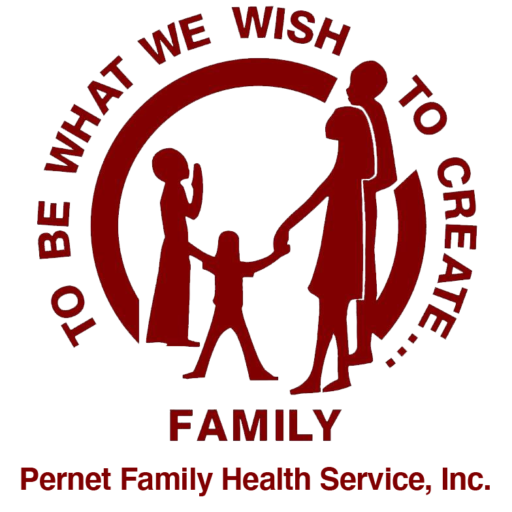Ways to Donate
We offer many ways to donate and support Pernet programs.
Financial support helps us buy supplies, keeps our pantry full, and supports local families. Pernet Family Health is a certified 501(c)3 nonprofit organization, Tax ID is (#04-2453851), and all donations are tax-deductible.

Cash or Check
Restricted and unrestricted gifts made by cash, check, or credit card are the most common and simplest for donors and Pernet Family Health Service. Generally tax-deductible in the year in which it is made, your cash gift can be put to work immediately.
Gifts in Honor or Memory
Any contribution may be made in honor or memory of a family member, teacher, or friend. Such as a tribute is a generous way to recognize another individual’s achievements or role in your life.
Planned Gifts
Your retirement assets, accumulated through life insurance, is a distinctive vehicle to use in making a planned gift. Naming Pernet Family Health Service as a beneficiary assures the donor that an intended amount (or percentage) of money will go to the Pernet. As long as the premium is paid up, the face amount will be paid. Note the difference between term insurance and whole life (universal life is another matter). Insurance can be beneficial to donors with large estates (and trusts) who wish to protect their assets for family and charity.
Income Producing Charitable gift
Often funded with cash or stock, a life income or deferred gift can supplement a current gift, enabling a donor to make a more significant contribution to Pernet than might be possible through a simple, outright gift. In general, these gifts will provide a donor and/or spouse with income for life; then the gift principal reverts to Pernet. The donor receives an immediate income tax charitable deduction while helping to secure Pernet’s future. Two popular vehicles for income-producing charitable gifts are Charitable Gift Annuities and Charitable Remainder Trusts.
Retirement Plan Gifts
Your retirement assets, accumulated over many years and invested in tax-deferred accounts, could ultimately be a large portion of your estate. You may wish to explore the benefit of designating the Pernet Family Health Service as a primary or secondary (after your spouse) beneficiary on your retirement plans.
Bequest
In addition to being the most common form of planned giving, a bequest to Pernet helps to ensure the future of the organization without affecting your current personal finances. Donors have many options in determining how to leave a bequest to provide for the maximum estate tax charitable deductions and benefits to Pernet.
Charitable Lead Trust
This trust arrangement has become a popular generation-skipping trust and uses the tax status of PFHS to accomplish an important objective. A donor may place assets into a trust for 10 years or more with the income immediately benefiting Pernet. At the end of the set period of time, the assets are passed on to the donor’s designated heir (or heirs), avoiding further estate taxes. Depending upon the asset used to create the trust, the trust may well have increased in value, which is taxed again at its transfer.
Planned, Deferred, and Combination gifts
Planned, deferred, and combination gifts offer donors excellent options to make major gifts while retaining some income from assets. Most of the previously mentioned ways of giving can also fund a charitable trust which retains income for a period of time (usually a lifetime), after which the PFHS may receive the assets. In some cases, a gift may be a combination of an outright gift and a trust to return income to the donor for a period of time. For more information about your planned giving options, please visit our planned giving website, or contact Sheilah Dooley at sdooley@pernetfamilyhealth.org or 508-755-1228.
Gifts from Donor Advised Funds or Family Foundations
Increasing numbers of donors are finding that donor-advised funds and foundations provide flexibility for their overall philanthropic activities.
Appreciated Securities
Charitable contributions of stocks, bonds, and other appreciated securities may provide you with a maximum tax benefit. Typically, deductible at the market value on the date gifted, your contribution of securities allows you to avoid capital gains tax on any appreciation.

